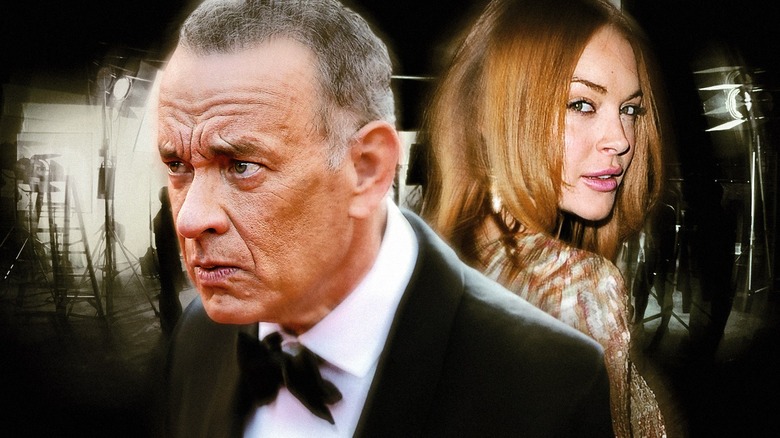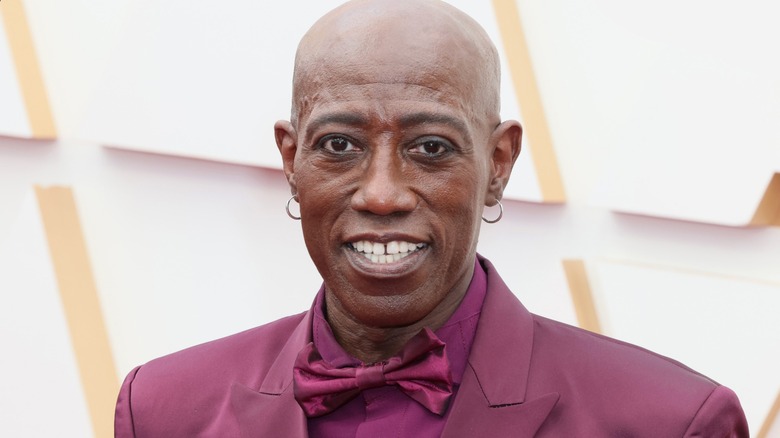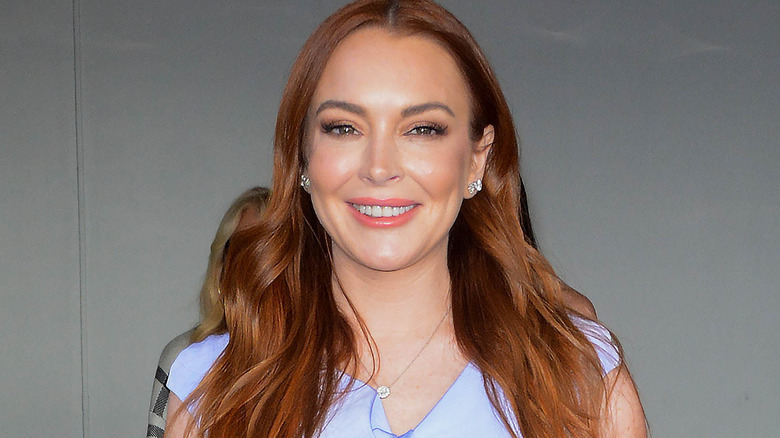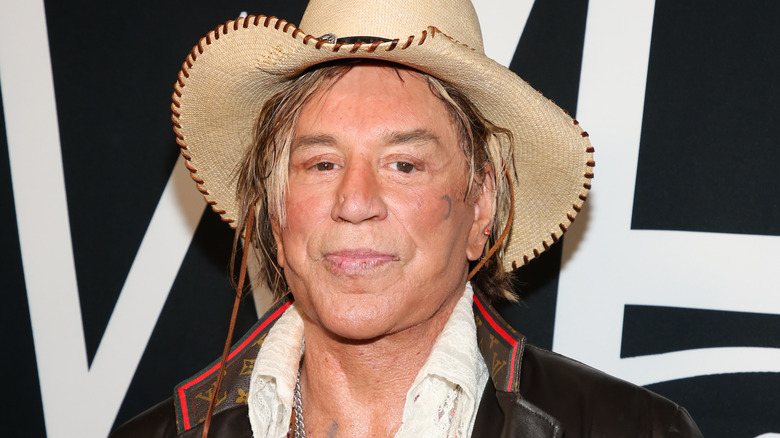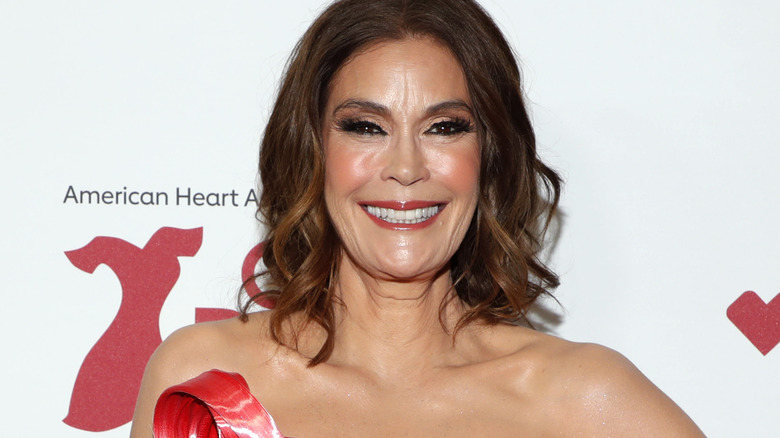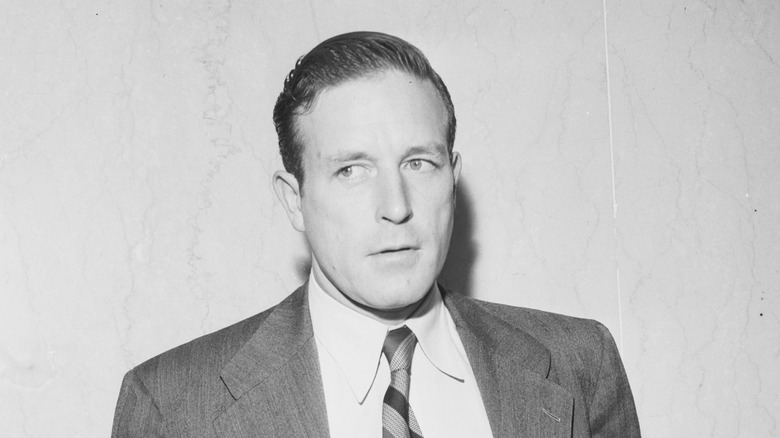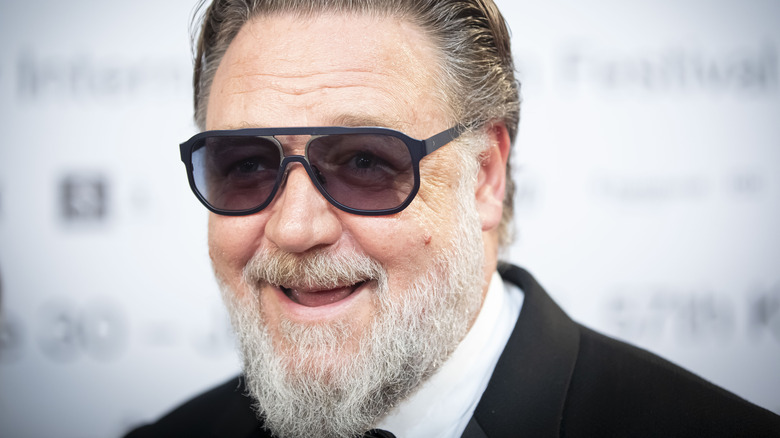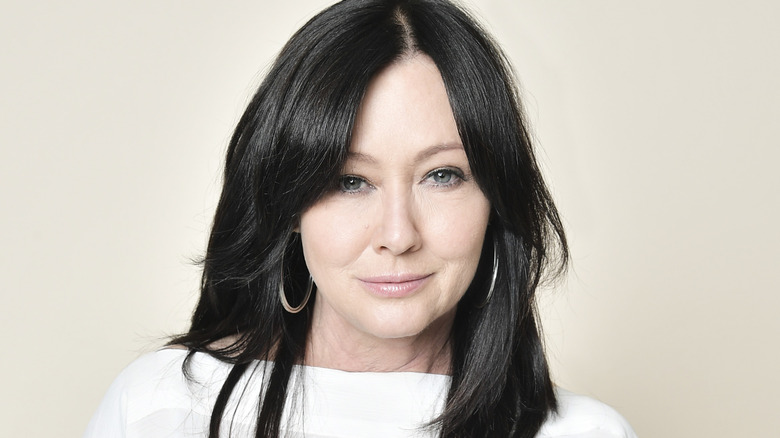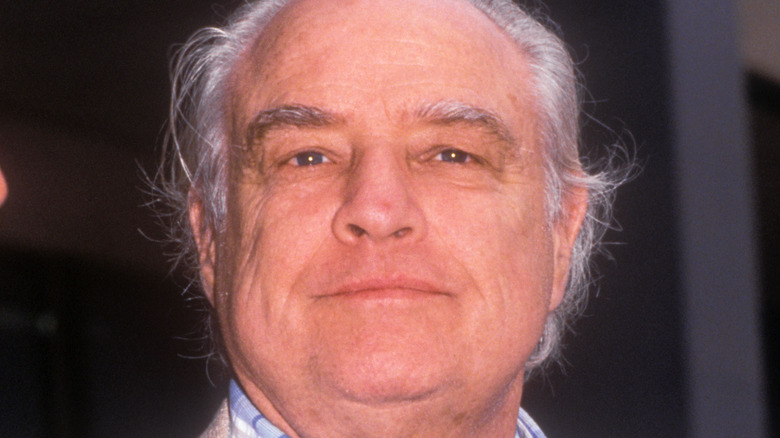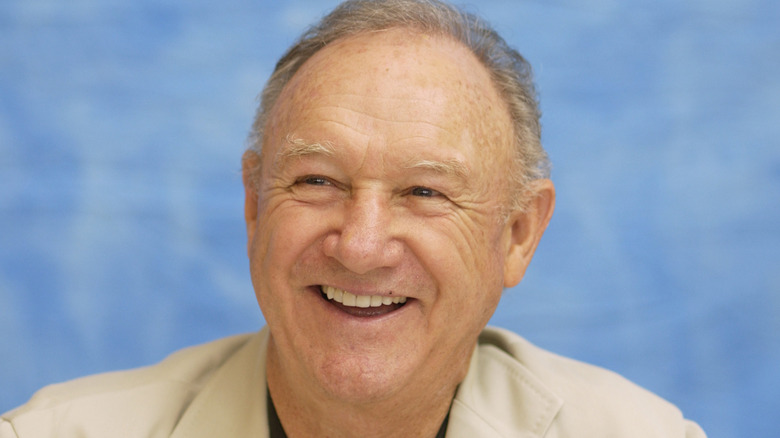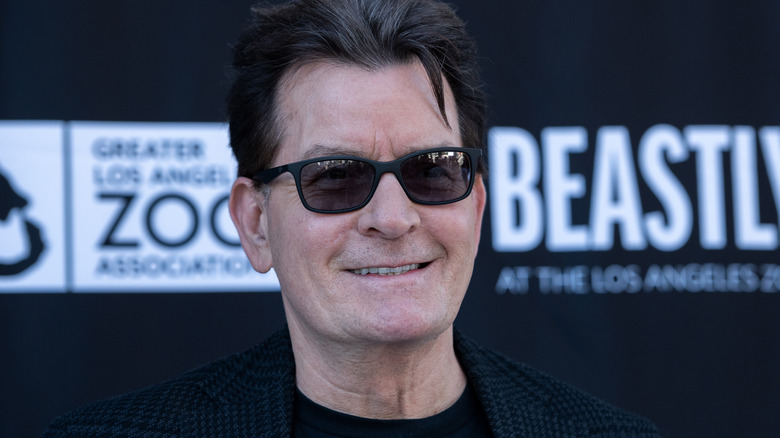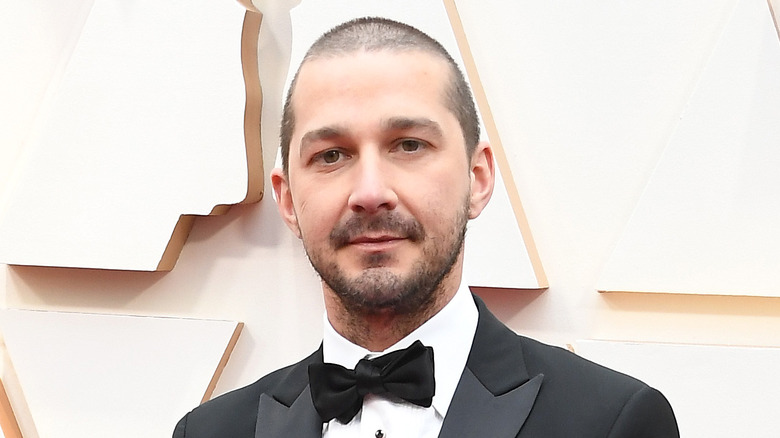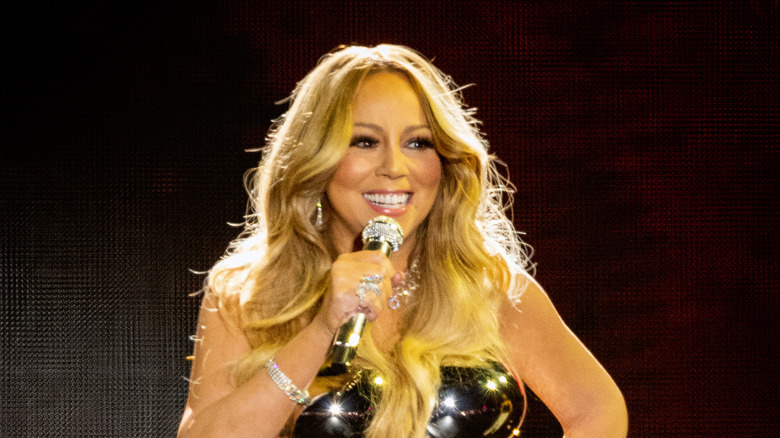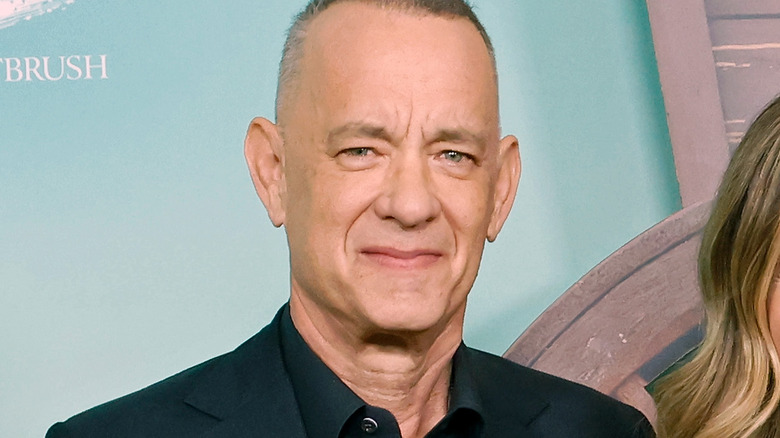Beloved Actors Who Behaved Badly On Set
Actors are the kind of celebrities that people love to read about, but not every story shows them in a good light. Celebrities are people, after all, and just like anyone else, they can be unpleasant and unreliable from time to time. The key difference between a regular person acting like a jerk at work and a beloved actor doing the same thing is how it impacts the people around them.
If you're unproductive at the office, you might inconvenience a few people. When an actor does the same thing, it impacts dozens or even hundreds of folks, ultimately costing a great deal of time and money. If an actor refuses to come out of their trailer, shows up late to set, or arrives under the influence of some mind-altering substance, it impacts everyone working on the project.
Because of this, when an actor doesn't do what they're supposed to do during production, it tends to make headlines. There are unfortunately many instances of actors verbally abusing people on movie sets, but these particular stars acted out in a number of other ways. Let's take a look at some beloved actors who behaved badly on set.
Wesley Snipes wouldn't work with the director on Blade: Trinity
Wesley Snipes enjoyed widespread success throughout his career following his 1989 performance in "Major League." He jumped to the A-list via "New Jack City," "Jungle Fever," and "White Men Can't Jump," proving the actor capable of carrying a feature film. Then, he arguably saved Marvel from financial ruin by headlining "Blade" and its two sequels.
The first two "Blade" films did well, but Snipes' "Blade: Trinity" didn't go as smoothly. The film didn't perform as strongly as its predecessors, but another problem came from Snipes' own behavior. Co-star Patton Oswalt said in a 2012 A.V. Club interview, "It was a very troubled production. Wesley [Snipes] was just f***ing crazy in a hilarious way. He wouldn't come out of his trailer, and he would smoke weed all day." Another encounter recounted by Oswalt ended when Snipes allegedly "tried to strangle the director." Snipes has since denied this claim and decried its proliferation as being racist. Director David Goyer neither confirmed nor denied it occurred when asked by The Hollywood Reporter in 2021.
Toward the end of production, according to Oswalt, Snipes would only communicate with Goyer through sticky notes and refused to open his eyes for one scene in the film. This infamously required the VFX department to animate his eyes with CGI later on.
Lindsey Lohan's off-screen issues translated into bad on-set behavior
Lindsay Lohan gained fame and celebrity status early in life by starring in several Disney reboots and requels. She first appeared on the silver screen in "The Parent Trap" and followed that with "Freaky Friday." She gained even more success and acclaim with "Mean Girls" and appeared to be on her way to becoming a major A-list star.
Unfortunately, Lohan ran afoul of the law due to substance use and other issues. This caused significant problems in her private life and impacted her job performance for several years. Lohan's behavior and late-night partying affected her work on "Georgia Rule" in 2007, which resulted in chastisement from co-star Jane Fonda. She even got an open letter from producer James G. Robinson.
Robinson described Lohan's behavior in the letter as "discourteous, irresponsible and unprofessional," writing, "You have acted like a spoiled child and, in so doing, have alienated many of your co-workers and endangered the quality of this picture. Moreover, your actions have resulted in hundreds of thousands of dollars in damage" (via People). Lohan eventually addressed these harmful patterns and has worked hard to repair her image and career in the years since.
If you or anyone you know needs help with addiction issues, help is available. Visit the Substance Abuse and Mental Health Services Administration website or contact SAMHSA's National Helpline at 1-800-662-HELP (4357).
Mickey Rourke has been chaotic on set
Mickey Rourke's first career was boxing, and he transitioned to acting in the late 1970s. He turned heads in "Rumble Fish," but "9½ Weeks" was his most significant early work. As he progressed, his partying and overspending made him difficult to work with, and some called him dangerous. "Angel Heart" director Alan Parker told People in 1994, "Working with Mickey is a nightmare. He is very dangerous on the set because you never know what he is going to do."
Rourke's excessive drinking and menacing behavior — he allegedly threatened screenwriter Mark Geldman — damaged his reputation. Rourke declined several notable roles, including leads in "The Untouchables," "Rain Man," "Beverly Hills Cop," and "Pulp Fiction." Eventually, he left acting and returned to the ring in 1991.
Rourke gave acting another go in the 21st century and reclaimed his fame, receiving a nomination for an Academy Award for best actor in 2009. Regarding his chances of taking home the statue, Rourke told the Daily Mail he doubted he would, saying, "I stupidly said acting wasn't a job for a real man. I threatened producers, raged at directors, forgot my agent's name. I really burned my bridges. And a lot of people have long memories."
Teri Hatcher didn't make any friends on the set of Desperate Housewives
Teri Hatcher gained fame in the 1990s through "Lois & Clark: The New Adventures of Superman." She went on to become a "Bond girl" but is probably best known for playing Susan Mayer in "Desperate Housewives." Susan is a loveable, clumsy, yet strong woman looking for love amidst overarching plotlines of fraud and murder, and Hatcher won numerous awards for her work on the show.
Behind the scenes, though, things weren't as they appeared on Wisteria Lane. While Susan might seem like the type of person who gets along with everyone, Hatcher apparently didn't fit that description. When co-star Nicollette Sheridan sued creator Marc Cherry and ABC for wrongful termination after her character, Edie Britt, was killed off the show, Cherry testified in court that Sheridan once called Hatcher the "meanest woman in the world" (via E! News).
Sheridan wasn't the only one who had a problem with Hatcher, according to numerous reports. Evidently, the other stars of "Desperate Housewives" didn't get along with her, and when they handed out parting gifts to the crew at the end of the show, they left Hatcher entirely out of it.
Lawrence Tierney was fired from Reservoir Dogs
Lawrence Tierney spent the better part of a century playing mobsters and bad guys in film and television, but he's probably best known by modern audiences for his later work. He played Elaine Benes' frightening father in "Seinfeld" and Joe Cabot in Quentin Tarantino's directorial debut, "Reservoir Dogs."
Throughout his life, Tierney's heavy drinking and problems with the law led to a number of incidents, including multiple arrests for violence against police officers and civilians. Burt Kearns' 2022 biography of Tierney succinctly summarizes the man in its title, "Lawrence Tierney: Hollywood's Real-Life Tough Guy." During production on "Reservoir Dogs," Tierney shot at his nephew, landing himself temporarily in jail. Tarantino told The Guardian, "Tierney was a complete lunatic by that time — he just needed to be sedated." The director added, "He was personally challenging to every aspect of filmmaking. By the end of the week, everybody on set hated Tierney — it wasn't just me." The two eventually got into a fistfight, and Tarantino fired Tierney.
Russell Crowe has had his share of trouble
Russell Crowe started acting in the 1970s in Australia and transitioned to Hollywood in the 1990s. His breakout performance came in 2000 when he played Maximus Decimus Meridius in "Gladiator." Crowe's career exploded after that film hit theaters, and he's been a major player ever since. As his fame grew, stories about Crowe's apparent temper also circulated.
In 2005, Crowe threw a phone at a hotel concierge, injuring him. He pled guilty and paid a settlement believed to be in the six-figure range, per the New York Daily News. Crowe later described the event during an appearance on "Late Show with David Letterman" as "possibly the most shameful situation I've ever gotten myself in in my life" (via People). The actor's off-screen encounters often got more press than his on-set behavior.
According to Nicole LaPorte's book, "The Men Who Would Be King: An Almost Epic Tale of Moguls, Movies, and a Company Called Dreamworks," Crowe threatened "Gladiator" producer Branko Lustig because of how little he paid his assistants, saying, "You mother******. I will kill you with my bare hands" (via The Guardian). Curtis Hanson directed Crowe in "L.A. Confidential" and told Variety, "Russell has a reputation of being difficult, and what I speculate is that he's difficult when he's not trusting."
Shannen Doherty rarely gets along with her co-stars
Shannen Doherty started acting as a child and is probably best known for playing Jenny Wilder in "Little House on the Prairie." Doherty's work in "Heathers" brought her to the attention of moviegoers, but her work on television is where she made her mark. Doherty played Brenda Walsh in "Beverly Hills, 90210," earning widespread acclaim, though she left the series after Season 4.
Doherty's departure wasn't voluntary. Tori Spelling, daughter of producer Aaron Spelling, said in a 2015 episode of "Celebrity Lie Detector" that she asked her father to fire Doherty due to her on-set behavior (via Distractify). Jennie Garth and Tori Spelling discussed Doherty's behavior on the "90210MG" podcast, with Spelling saying, "I think it affected everyone and therefore the energy became toxic on set. I'm not saying she made it toxic, just from everything going on" (via People).
In his memoir, Jason Priestley described Doherty as a diva. She later starred in "Charmed" as Prue Halliwell but left that series after Season 3. Rumors surrounded her departure due to her public feud with "Charmed" co-star Alyssa Milano.
Marlon Brando was notoriously difficult throughout his career
Marlon Brando was one of the greatest actors of his generation. He played Stanley Kowalski in "A Streetcar Named Desire," earning his first Academy Award nomination. He won his first Oscar for "On the Waterfront" a few years later, and he played Vito Corleone in "The Godfather," making Brando a permanent fixture in pop culture.
While he's inarguably a talented actor, Brando was unusual. First and foremost, he refused to memorize his lines. For the apparent sake of spontaneity, Brando wouldn't commit his lines to memory, preferring to use cue cards instead. While filming "Superman: The Movie," his lines appeared on the diaper of the infant actor playing Superman. In "The Godfather," actors had cue cards taped to their chests. It was odd, but it worked.
While that idiosyncrasy was difficult, Brando's work on "Apocalypse Now" was his most chaotic on-set behavior. He arrived overweight and unprepared to play Colonel Kurtz. He nearly came to blows with Dennis Hopper, and his intransigence to learn his part led to improv and major staging changes, contributing to director Francis Ford Coppola later quipping, "My film is not about Vietnam — it is Vietnam," referring to the difficulties he had filming it (via HuffPost).
Gene Hackman terrified everyone on The Royal Tenenbaums
Gene Hackman's work in "The French Connection" made him a star, and he spent the next five decades appearing in all kinds of films. Hackman played Lex Luthor in "Superman: The Movie," and he played significant roles in "Hoosiers," "Crimson Tide," and "The Birdcage." Throughout it all, he was a consummate professional, but his co-workers on "The Royal Tenenbaums" were afraid of him.
Bill Murray, Anjelica Huston, Gwyneth Paltrow, and director Wes Anderson attended the 10th-anniversary screening of "The Royal Tenenbaums" at the New York Film Festival in 2011, and they had much to say about Hackman. Paltrow and Anderson admitted to being scared of him, and Huston said, "I was a lot scared, but I was more concerned with protecting Wes."
According to Anderson, Hackman once told him to "pull up your pants and act like a man" on set after cursing him out. Despite his behavior on set, Anderson said, "We make jokes about him being challenging, well he was, but it was also exciting to [work with him] for me." Paltrow echoed this sentiment, saying, "If you're Gene Hackman, you can be in a f***ing bad mood if you want to, you're Gene Hackman" (via Uproxx).
Charlie Sheen's behavior made him a menace to work with
Charlie Sheen's career is full of stories of his wild behavior, run-ins with the law, and extended periods of heavy substance use. Sheen became famous in the 1980s and was a major Hollywood player for years. When he made the jump to television via "Two and a Half Men," he became the highest-paid TV actor at the time, but it didn't last.
Sheen had a very public falling out with producer Chuck Lorre, leading to his termination. Sheen's career took a nosedive, but he landed another series in "Anger Management," with him as the lead. Opposite Sheen was Selma Blair as Dr. Kate Wales, his character's therapist, and the show was relatively successful, completing 100 episodes in only two seasons.
Sheen's behavior became problematic once more, and the world heard about it after TMZ spilled the beans on the troubled production. The report claimed that Blair complained to producers about Sheen's constant tardiness and unprofessional behavior, and he didn't take it well. Sheen refused to film if she remained on the program and lobbied FX to replace Blair with Mila Kunis. Blair did leave the show after Sheen reportedly fired her via profane text.
Shia LaBeouf's method acting puts a lot of people off
Shia LaBeouf began acting in childhood and landed several notable roles along the way. He's probably best known for playing Sam Witwicky in the first few "Transformers" films and has diversified his portfolio with all kinds of performances. He's also, famously, a method actor, which can make him difficult to work with, as he fully engrosses himself in the characters he plays.
This became an issue on the set of "Lawless," where LaBeouf prepared for his role by drinking excessive amounts of moonshine. He did this to achieve a drunken bloat for the role, which was a challenge for everyone else involved. Co-star Mia Wasikowska spoke to HuffPost about working with LaBeouf, saying, "He's a very method actor, and so I was on the receiving end of the method." LaBeouf, who was sued for emotional and physical abuse by ex-girlfriend FKA Twigs in 2020, spoke about working with Wasikowska to Page Six (via The Cut). "I was really pretty aggressive about it, and not in any kind of weird, strange way, but I don't think she had ever experienced anything like that," he said.
If you or someone you know is dealing with domestic abuse, you can call the National Domestic Violence Hotline at 1−800−799−7233. You can also find more information, resources, and support at their website.
Mariah Carey didn't bother to show up for her The House cameo
Mariah Carey is, above all else, a singer and songwriter, but she's been in more than a dozen feature films throughout her career. In this capacity, she's probably best known for her work in "Glitter," and she's had numerous cameos over the years. Carey is also a self-confessed "diva," admitting in a 2022 interview with W Magazine, "Yes, I play into it."
In 2017, Carey was supposed to film a cameo for the comedy "The House," but she's not in the movie. According to actor Rob Huebel, who discussed her visit to set with Entertainment Weekly, Carey made "amazing requests' upon arriving that made her impossible to work with. Huebel claimed that she arrived four hours late, refused to sing a previously approved song, and quibbled over her character.
Ferrell also addressed Carey's behavior on "Watch What Happens Live with Andy Cohen." "Well, one script note was, 'I don't want to do this scene,'" he said. He called dealing with Carey a "s***show" and claimed that she insisted her trailer come stocked with stuffed lambs for a one-day gig.
Tom Hanks admits he can be tough to work with
If there's one actor few could imagine behaving badly at work, it's Tom Hanks. The man is known colloquially as "America's Dad," and he's maintained a wholesome image throughout his career. While he began in comedy, he's evolved into a highly respected dramatic actor, producer, and director with two Academy Awards sharing his mantle with many other impressive accolades.
He hasn't dominated headlines for outlandish behavior, but Hanks admits he can be a jerk while shooting movies. Speaking about his novel "The Making of Another Major Motion Picture Masterpiece" with BBC, Hanks compared himself to the main character, an actor who's notoriously hard to work with. "I have pulled every single one of those moments of behavior myself on a set," Hanks said. "I've had tough days trying to be a professional when my life has been falling apart in more ways than one and the requirement for me that day is to be funny, charming, and loving — and it's the last way I feel."
Leave it to Hanks to admit to bad behavior in as charming a way as possible. Despite his admission, Hanks' co-stars have always sung his praises. Still, the one thing he refuses to do, regardless of his personal concerns, is be late to work. In his interview with BBC, he called tardiness a "cardinal sin in the motion picture business."
